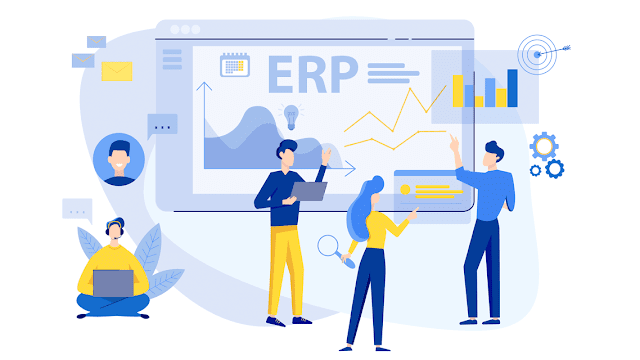Implementing ERP In The Face Of Challenges!
An ERP Implementation might help your company discover hidden value. You can improve operational efficiency, data visibility, and customer experience with the proper solution.
However, because many ERP installation obstacles exist, it is critical to tackling this significant shift with caution.
When you know what to expect, you can prepare to adhere to tried-and-true best practices at every stage of your implementation. Today, we'll go over some of the most prevalent obstacles and the best strategies for overcoming them.
Implementing ERP: Top 5 Challenges
1. Navigating the Project Planning Stage
A lack of adequate time is often cited as one of the reasons companies fail to plan projects effectively. Planning correctly can help you avoid scope creep, which occurs when you add more processes to your scope without enough resources, budget, or time. Another essential activity during the project planning stage is business process management. Examining your present workflows to find pain areas and process optimization is necessary. Afterward, you can compile a list of business requirements that can assist you in finding the right erp solution for your needs.
2. Selecting the Right Technology
With the proper foundation in place, you can begin your search for the best erp system for your company. Many organizations select the solution with the most bells and whistles, even if it includes features they don't need. Be wary of choosing a solution based on a slick vendor presentation. Instead, think about which tools and functions your team will use instead. It takes project management and people skills to handle this type of oversight.
3. Prioritizing Data Management
Data from your business can be consolidated and centralized with ERP software. The ability to oversee people as well as projects is needed for this kind of oversight. Data quality is critical during an enterprise resource planning implementation. You must first find your data sources before removing duplicates and fixing errors. Data is usually spread across disparate systems – from your company intranet to a paper-based filing system. This is why allocating plenty of time to the data migration phase is essential. This phase is focused on ensuring that only clean, helpful, and accurate data goes into the new system.
4. Ensuring System Usage Among End-Users
While technical challenges can occur in an enterprise resource planning project, most issues are people-related. You may have difficulty convincing your workforce that this is a beneficial change. Developing an organizational change management plan before a software implementation can help you minimize change resistance. By focusing on the people-side of the change, you can avoid costly downtime and maximize the return on your investment.
5. Optimizing Project Management
A professional erp project includes many stages, from initial discovery to ongoing post-launch updates. The right project manager can keep everyone on task, time, and budget. It takes project management and people skills to handle this type of oversight. A project manager should be able to communicate quickly, listen well, and make informed decisions that keep your company's mission top of mind.
In Summation!
An ERP project has a lot of moving parts. It can be hard to forecast everything that could go wrong; therefore, prioritizing project planning over ERP selection is advantageous. When you know what to expect in terms of ERP implementation challenges, you can plan to pay close attention to these details.
Our ERP consulting firm, Connected IT Consulting, can help you create a project plan to keep your ERP from failing.
To schedule a quick consultation, please connect with erp development experts here.
Small Business ERP
ERP software
ERP planning applications
ERP Project Management
Business Process mapping
ERP Implementation Services
ERP Consulting Company



Comments
Post a Comment